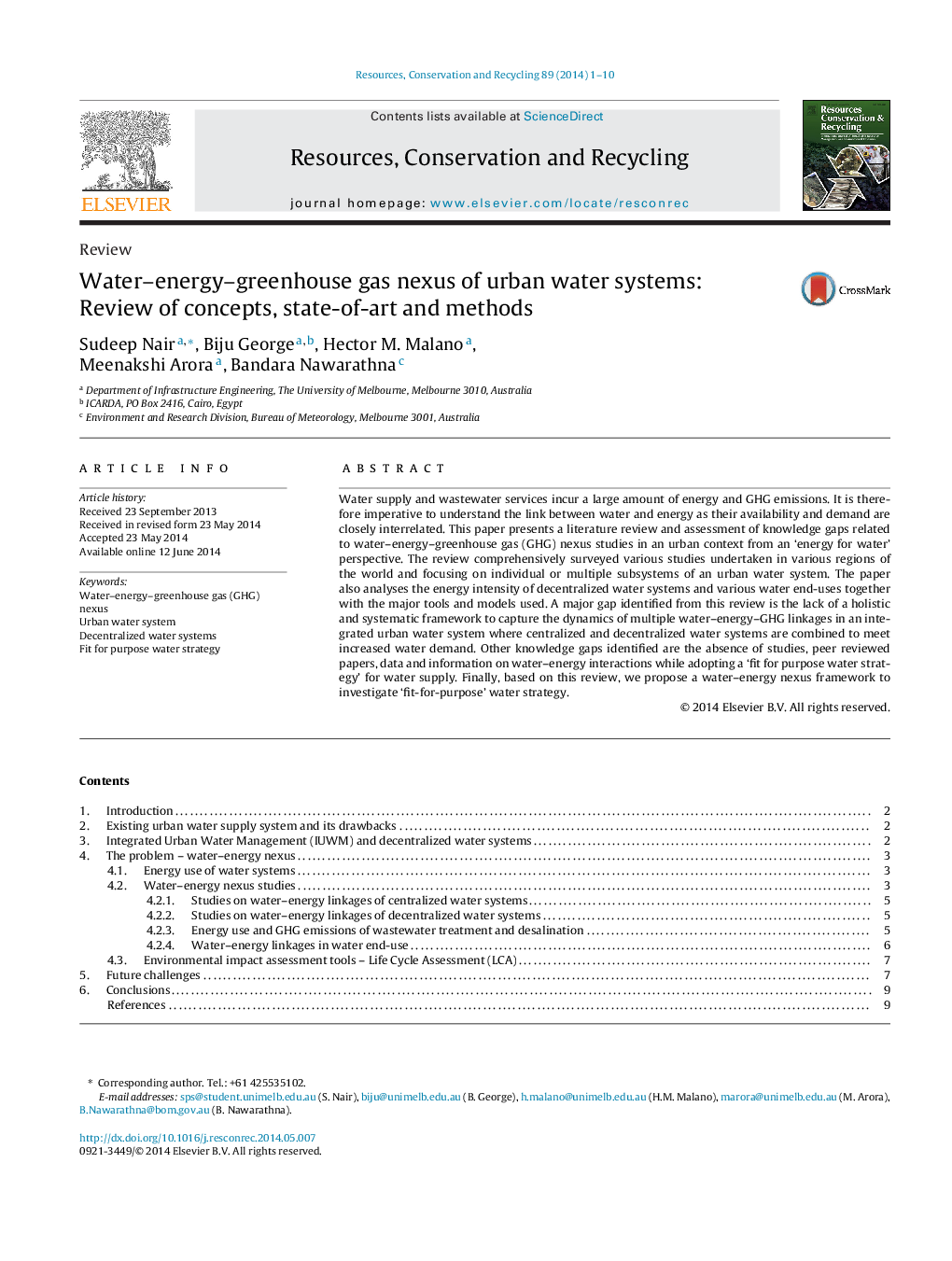| Article ID | Journal | Published Year | Pages | File Type |
|---|---|---|---|---|
| 1063074 | Resources, Conservation and Recycling | 2014 | 10 Pages |
•Water and energy are highly entwined.•Direct energy use is relatively well accounted and studied than indirect or embodied energy use.•Energy use of water end use is comparatively overlooked.•The main assessment technique is Life Cycle Assessment (LCA).•Lack of a holistic and systemic framework to capture the water–energy dynamics in urban water system.
Water supply and wastewater services incur a large amount of energy and GHG emissions. It is therefore imperative to understand the link between water and energy as their availability and demand are closely interrelated. This paper presents a literature review and assessment of knowledge gaps related to water–energy–greenhouse gas (GHG) nexus studies in an urban context from an ‘energy for water’ perspective. The review comprehensively surveyed various studies undertaken in various regions of the world and focusing on individual or multiple subsystems of an urban water system. The paper also analyses the energy intensity of decentralized water systems and various water end-uses together with the major tools and models used. A major gap identified from this review is the lack of a holistic and systematic framework to capture the dynamics of multiple water–energy–GHG linkages in an integrated urban water system where centralized and decentralized water systems are combined to meet increased water demand. Other knowledge gaps identified are the absence of studies, peer reviewed papers, data and information on water–energy interactions while adopting a ‘fit for purpose water strategy’ for water supply. Finally, based on this review, we propose a water–energy nexus framework to investigate ‘fit-for-purpose’ water strategy.
Graphical abstractFigure optionsDownload full-size imageDownload as PowerPoint slide
